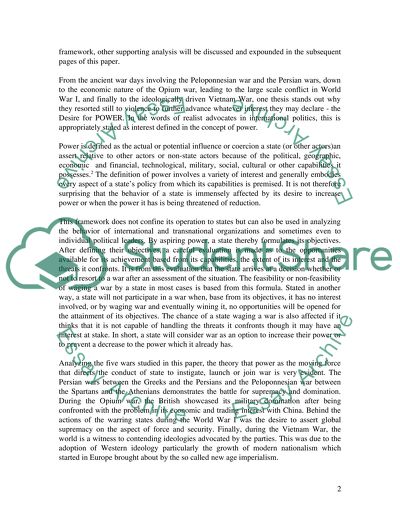Vietnam, World War I, Opium Wars, Persian Wars, and the Cuban Missile Essay. Retrieved from https://studentshare.org/history/1510349-vietnam-world-war-i-opium-wars-persian-wars-and-the-cuban-missile-crisis
Vietnam, World War I, Opium Wars, Persian Wars, and the Cuban Missile Essay. https://studentshare.org/history/1510349-vietnam-world-war-i-opium-wars-persian-wars-and-the-cuban-missile-crisis.


